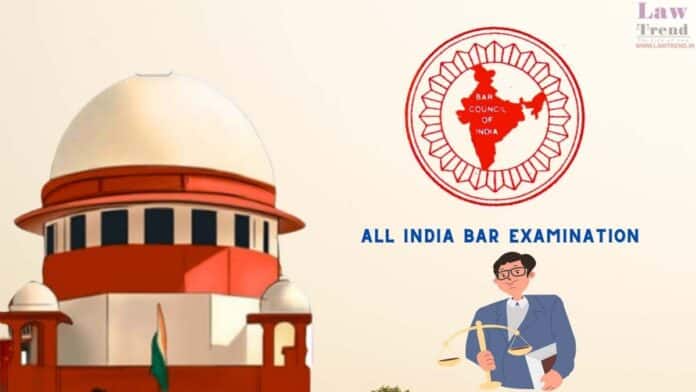In a significant move promoting inclusivity, the Supreme Court of India has granted accommodations to disabled law students for the upcoming All India Bar Examination (AIBE) and expressed concerns over the lack of a consistent policy for accommodating such students in the Common Law Admission Test (CLAT). The court’s intervention addresses critical needs for technological aids and procedural clarity for disabled candidates.
Justice Surya Kant and Justice Ujjal Bhuyan, were presiding over a petition by three disabled law students requesting reasonable accommodations for the CLAT-PG and AIBE exams. Among the petitioners, one student from NALSAR University of Law sought permission to use a computer for the AIBE, while two others, including a student from Government Law School, Mumbai, requested similar accommodations and access to digital versions of Bare Acts.
The Bar Council of India (BCI) initially agreed to allow two of the petitioners to use computers for the AIBE. Advocate Rahul Bajaj, representing the petitioners, clarified the need for screen readers like Job Access With Speech (JAWS), which are essential for visually impaired students. Justice Kant emphasized that financial constraints should not hinder such accommodations, remarking on the BCI’s ample financial resources.
Further deliberations revealed the BCI’s tentative plan, which only permitted students to test the computers and software two hours before the exam. The court, however, ruled that students should have access to this equipment a day prior to ensure functionality and familiarity, a decision that aligns with the Union’s guidelines issued by the Ministry of Social Justice and Empowerment in 2018.
Additionally, the court was taken aback by the National Law University Consortium’s lack of a formal policy to systematically address the needs of disabled students despite recurring issues annually. Each year, a different university hosts the CLAT, leading to inconsistent accommodations. Justice Kant criticized this approach, urging the consortium of vice-chancellors to establish a permanent policy.
The Supreme Court has now directed the BCI to provide JAWS software at its expense and allowed students to use their own keyboards during the exams. It also ordered the NLU Consortium to take a policy decision within four weeks to address these accommodation issues systematically.




